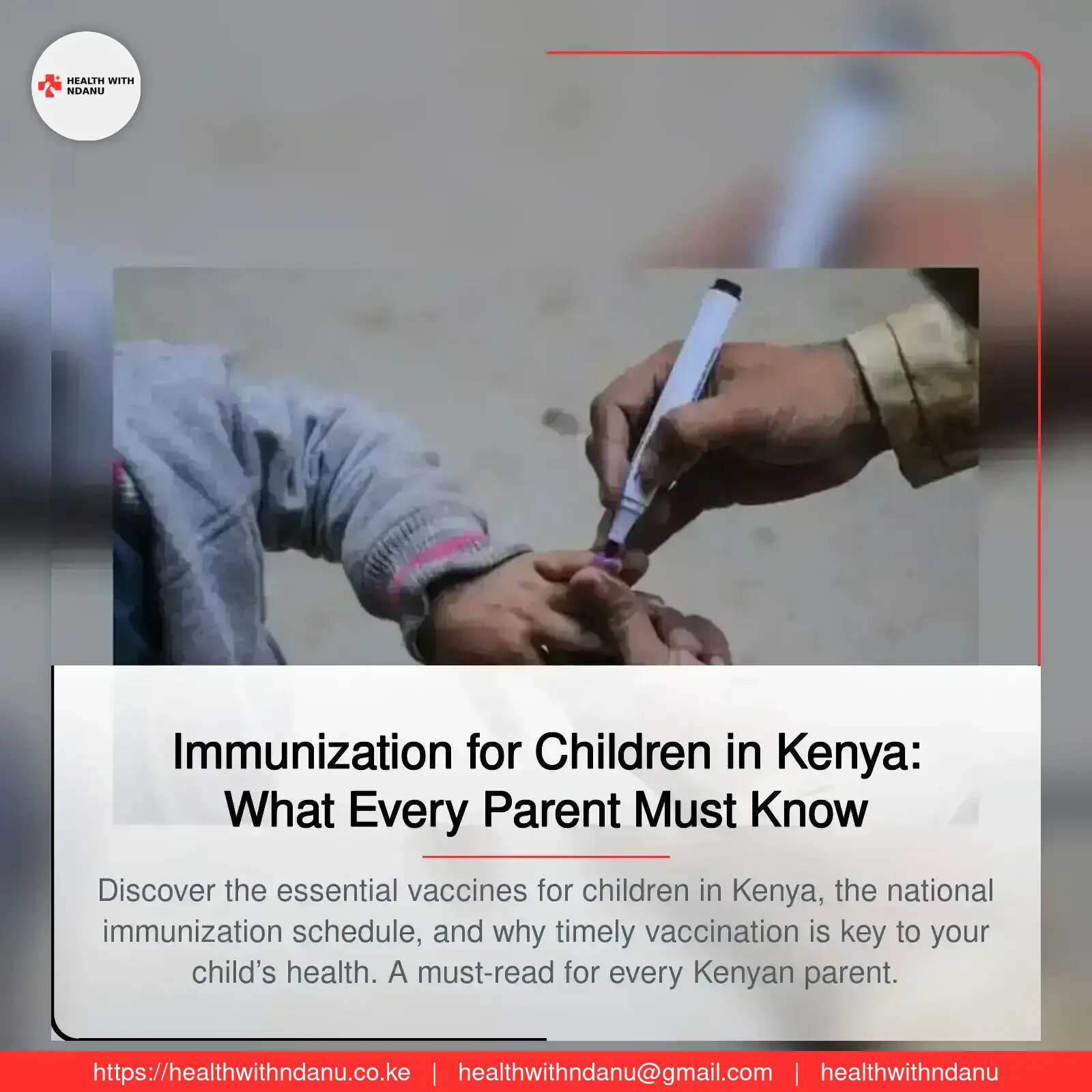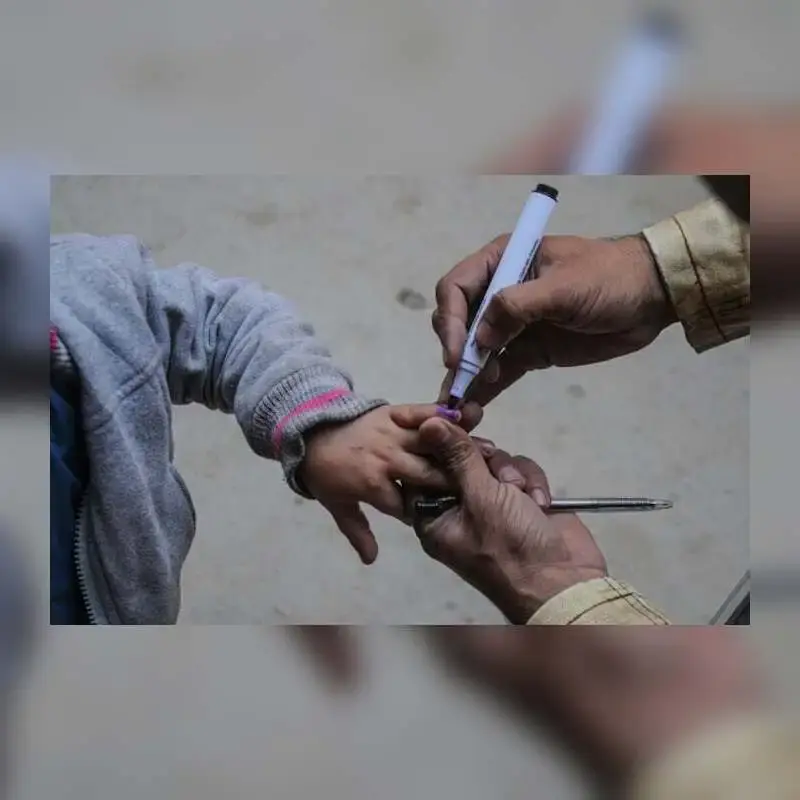Immunization for Children in Kenya: What Every Parent Must Know
- by Diana Ndanu
- 11 April, 2025
- 0 Comments
- 6 Mins



Introduction
A Parent’s First Shield of Love
Becoming a parent in Kenya—or anywhere in the world—is an exciting and life-changing journey. From the moment your baby is placed in your arms, a natural instinct kicks in: to protect, to nurture, and to ensure they grow up healthy and strong.
But with all the joy comes responsibility. One of the most critical steps you can take early on is making sure your child gets all the recommended vaccinations. Immunization isn’t just about protecting your baby from illness—it’s a powerful gift you give them that lasts a lifetime.
In Kenya, we are fortunate to have the Kenya Expanded Programme on Immunization (KEPI), which provides life-saving vaccines free of charge. Yet, many parents are still unsure about when to vaccinate, what the vaccines do, or if they’re really necessary.
This article is your go-to guide: simple, clear, and rooted in the everyday experiences of Kenyan parents. Let's walk through everything you need to know about child immunization in Kenya—from the vaccines available to where to get them and why timely protection is crucial.
Why Immunization Is So Important
Vaccines are one of the most effective ways to protect your child from serious diseases. Before vaccines became common, many children died or suffered lifelong complications from illnesses like polio, measles, or tuberculosis.
Here’s what makes vaccines essential:
- They save lives. Diseases like measles and polio are deadly—but completely preventable through vaccines.
- They protect your community. When most children are vaccinated, it reduces the spread of diseases, protecting even those who can’t be vaccinated (like babies under 6 weeks or children with serious health conditions).
- They are safe. All vaccines used in Kenya have passed rigorous tests by global and national health bodies.
- They prevent long-term disability. Conditions like polio can lead to permanent paralysis. Vaccines protect your child’s quality of life.
Still unsure? Consider this: it’s far cheaper—and safer—to prevent a disease than to treat it later.
Vaccines Provided Under KEPI (Kenya Expanded Programme on Immunization)
The Kenyan Ministry of Health, through KEPI, provides a full range of childhood vaccines at public health facilities, at no cost.
Here are the vaccines your child should receive:
These vaccines are safe, effective, and approved by the World Health Organization (WHO).
Kenya’s Child Immunization Schedule (From Birth to 18 Months)
Timing is everything when it comes to vaccines. Kenya’s immunization schedule is designed to protect children during their most vulnerable stages. Here's a breakdown:
At Birth
- BCG (injection): For tuberculosis
- OPV 0 (oral): First dose of polio
6 Weeks
- OPV 1
- Pentavalent 1
- PCV 1
- Rotavirus 1
10 Weeks
- OPV 2
- Pentavalent 2
- PCV 2
- Rotavirus 2
14 Weeks
- OPV 3
- Pentavalent 3
- PCV 3
9 Months
- Measles-Rubella 1
- Yellow Fever (only in some counties)
18 Months
- Measles-Rubella 2
Bonus tip for parents: Always carry your child’s Mother and Child Health Booklet to each clinic visit—it’s your best record.
Where to Get Your Child Vaccinated in Kenya
You don’t need to travel far to find immunization services in Kenya. Here's where you can go:
- Public health facilities – Free under KEPI; available in nearly every county
- Mission and faith-based hospitals – Also offer vaccinations, often at minimal or no cost
- Private clinics – Convenient, but may charge fees
- Community outreaches and mobile clinics – Especially helpful in remote or informal settlements
Remember, no child should miss a vaccine due to lack of money. Government vaccines are free—just walk into your nearest clinic.
Common Myths and Misconceptions About Immunization
Unfortunately, misinformation spreads faster than viruses. Let’s set the record straight:
1. “Vaccines can cause infertility.”
False. This myth has been widely disproven by science. Vaccines have no effect on fertility—in men or women.
2. “My child is sick, so I can’t vaccinate them.”
Mild illnesses like colds, coughs, or low fever are not a reason to delay vaccination. If you're unsure, ask the nurse.
3. “My baby is too small for vaccines.”
Vaccines are specially formulated for babies—starting at birth. That’s why BCG and OPV 0 are given immediately after delivery.
4. “Traditional medicine can replace vaccines.”
While cultural practices are important, they cannot replace modern medicine. Vaccines are proven, effective, and based on decades of global research.
Tips for Parents: Making Immunization Easier
Getting your child vaccinated doesn't have to be stressful. Here are some helpful tips:
- Set reminders. Mark vaccine dates in your phone or calendar.
- Go early. Clinics are often less crowded in the morning.
- Bring snacks or toys. Distract or comfort your baby after the jab.
- Ask questions. Nurses are happy to explain how each vaccine works.
- Record the visit. Take a quick photo or note for your personal records.
What to Expect After Vaccination
It’s normal for babies to experience some side effects after vaccination. These are a sign the body is building protection:
Common side effects:
- Mild fever
- Redness or swelling at the injection site
- Fussiness or irritability
- Reduced appetite
These usually go away within a few days.
When to seek help:
- High fever above 39.5°C
- Severe swelling or allergic reactions
- Unusual crying or sleepiness lasting over 24 hours
- If in doubt, return to the clinic or call a health worker.
Missed a Vaccine? Here's What to Do
Life happens—sometimes, clinic days are missed due to travel, sickness, or emergencies. The good news?
- It’s never too late to catch up.
- Visit your clinic and explain what vaccines were missed
- Nurses will create a catch-up schedule for your child
- Most clinics are flexible and will guide you with care and compassion
- The key is to resume immunization as soon as possible.
Teen Vaccines: What About HPV?
Did you know the HPV vaccine helps prevent cervical cancer, one of the leading killers of women in Kenya?
- Given to girls aged 10 years, usually at school or clinic
- Two doses, 6 months apart
- Safe, free, and highly effective
- Encourage your daughter to get vaccinated—it’s one of the most powerful gifts you can give her.
Conclusion: Be a Champion for Your Child’s Health
Immunization is not just a medical procedure—it’s a promise you make to your child. A promise that says, “I will protect you.” A promise that helps build a healthier Kenya for all.
By following Kenya’s immunization schedule, asking the right questions, and staying informed, you are doing your part as a parent and as a responsible citizen.
So mama, baba—don’t wait. Check your child’s booklet. Visit your local clinic. Let’s give every child in Kenya a safe start in life.
Call to Action:
Visit your nearest clinic today and protect your child with life-saving vaccines. Immunization is free, safe, and the best gift a parent can give.
Got Your Own Experience? Share with us
Popular Categories
Mablogu Zinazobambwa Sana
Daily Newsletter
Get all the top stories from Blogs to keep track.



